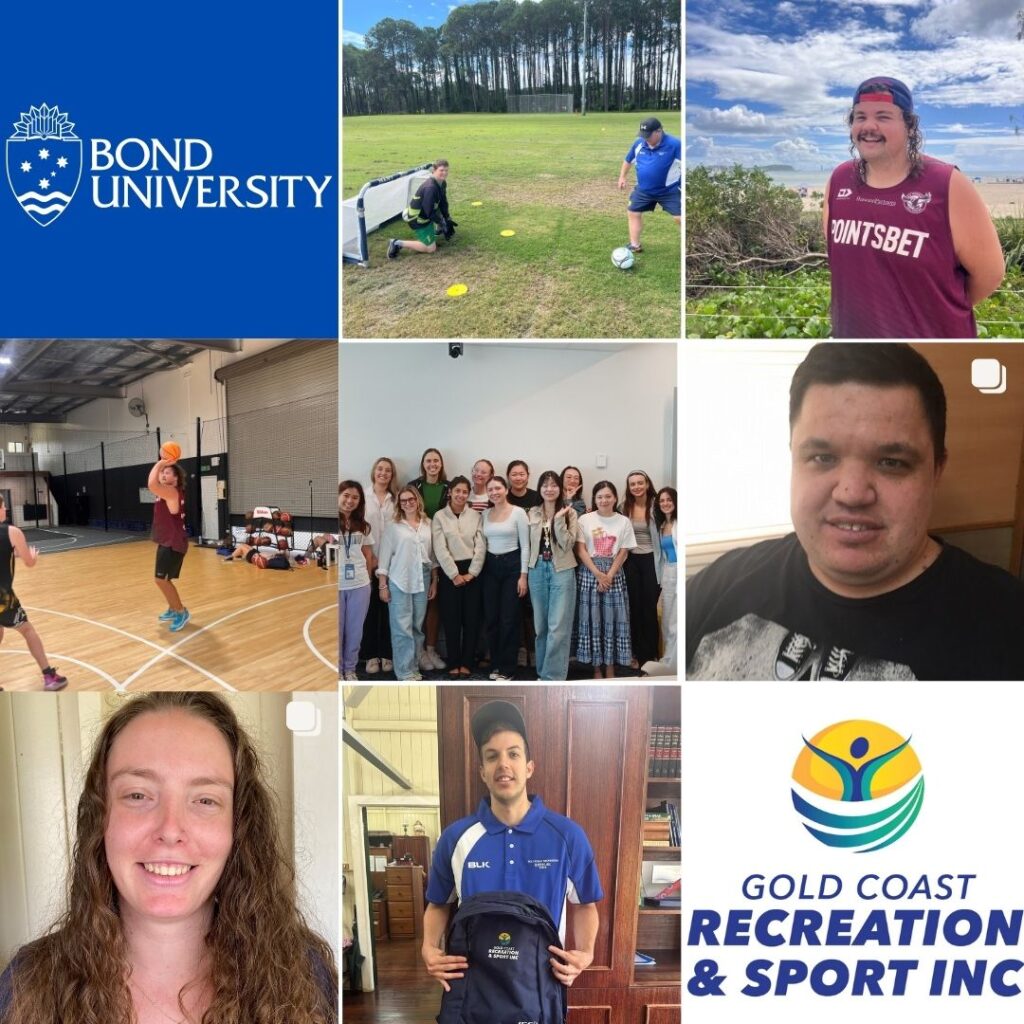
Bridging Theory and Lived Experience: GCRS Participants Share Their Stories at Bond University

At Bond University, students studying health and social sciences are introduced to a way of thinking about disability known as the social model. This model encourages them to shift their focus from the individual to the environment—looking at how surroundings, systems, and attitudes can either create barriers or help remove them for people living with a disability.
As part of the program at Gold Coast Recreation and Sport (GCRS), we take great pride in the annual initiative that connects our participants with future healthcare professionals. Each year, individuals with disability are invited to Bond University to share their personal stories with students studying Allied Health and Occupational Therapy.
What makes this experience truly meaningful is hearing directly from people with lived experience. When the participants share their stories—whether about navigating work or education, receiving support from an occupational therapist, or simply how an environment helped or hindered their daily life—it brings the learning to life.
These shared experiences offer invaluable insight into what it means to live with a disability in today’s world. They also help future professionals understand the importance of designing inclusive environments and offering support that truly meets people where they are.
This initiative goes far beyond a classroom lesson. It offers students a unique opportunity to engage with real-world experiences—shifting their understanding of disability from theory to practice. By hearing firsthand accounts, students are challenged to think more deeply about how their future work can be shaped by the real needs and voices of those they aim to support.
The lived experiences shared by our participants are a vital part of the learning journey for Occupational Therapy students. These interactions allow students to ask meaningful questions, reflect on their own assumptions, and build a more comprehensive and empathetic understanding of the diverse challenges people with disability may face in everyday life.
More importantly, these conversations inspire students to consider how they can actively design and advocate for more inclusive and accessible environments—whether in workplaces, schools, healthcare settings, or community spaces.
For our participants, the experience is empowering. It gives them a platform to be heard and to help influence the future of disability-inclusive practice. For the students, it’s a powerful reminder that the people they will one day work with are not just “case studies” but individuals with complex stories, needs, and strengths.
By bringing lived experience into academic learning, this partnership between GCRS and Bond University ensures that the next generation of allied health professionals keeps the voices of people with disability at the heart of their work.
We would like to extend a heartfelt thank you to Bond University for their ongoing partnership and for providing such a welcoming space for this exchange of knowledge. And most importantly, thank you to our participants, Josh, Harrison, Ben, Luke, Jayden and Cabrini (pictured above) whose honesty, generosity, and courage in sharing their stories make this experience truly impactful.
Just some of the feedback from the Bond Health Students below:
“It was incredibly meaningful to hear directly from individuals with disability and the three dedicated staff members who joined. I sincerely appreciate the openness with which they spoke about the challenges they face, not only on a personal level but also within the social and cultural environments.”
“Their reflections highlighted important barriers—such as lack of understanding, accessibility issues, and social exclusion—and at the same time, offered insight into what meaningful support really looks like. I was particularly moved by how they articulated their true needs beyond surface-level assumptions. It reminded me how essential it is to listen first, and to design inclusive supports with—not just for—people with disability. Thank you again for making this experience possible. It was not only educational but deeply humbling and inspiring.”
“Your story has encouraged me to reflect on how I can grow into a better occupational therapist and work more effectively with individuals. I have come to realize that every person is unique and special, deserving of respect, empathy, and individualized care.”
“Thank you so much for sharing your time, experiences, and insights with us today. It was truly inspiring to hear how each of you navigates and thrives within your physical, social, and cultural environments. Your stories gave us, as future occupational therapists, a deeper understanding of inclusion, strength, and community. We’re truly grateful for your openness and the opportunity to learn from you. We look forward to seeing you again soon!”
” I think it is great to have today’s opportunity to gain insight into accessibility, the working environment, and OT services from a client’s perspective. Over the past two semesters, we have learned so much about theory and models, so it is valuable to see how these apply in real-life situations. Gaining this perspective can help us apply our knowledge in a more client-centered way, which will hopefully help us become better OTs for the people who need us.”

